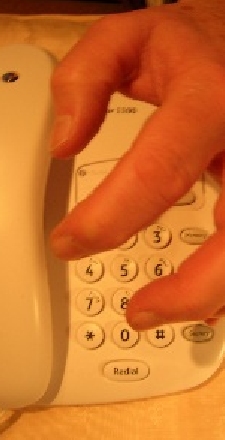Spotting
and avoiding scams
Scammers will try anything to get their hands on your money. Here
we look through how to spot telephone or email scams early and bin
their attempts.
Action fraud is the UK national reporting centre for fraud.
actionfraud.police.uk
Which? magazine guide to scams
More
Posted: 200619 |
 |
Spotting
and avoiding scams
> Have you been called out of the blue? If
in doubt check but remember a phone line can remain open after
you have hung up if the scammer stays online and plays a false
dialling code.
>
Does the email come from a company you know as an existing customer
and does it address you by name? Fake emails can start with
"Dear customer" or "Dear friend"!
> Are you being asked to share your personal details or
enter a password or a date of birth? Scammers can get hold of
personal information which might easily reassure you - just
ring off and after 15 minutes call the number you have for them.
> Are you being invited or pressured to respond promptly?
If the caller starts going through "security checks"
always respond "just a moment, I need to check you first
- who are you and what are the contacts for your organisation
so I can check you out?"
> Check the email address of the sender and the message
- does it have spelling or grammatical mistakes? Frequently
scammers' messages reveal mistakes.
> Are there contact details for the organisation contacting
you? Scammers often show PO Box numbers or mobile phones
as their contacts.
> Is the scammer offering a "special offer"
just for you? Some scammers promoting financial products
don't want you discussing their "special offers" with
family of professional advisors who may spot they are scammers.
> Does the scammer ask for a payment via a bank transfer?
Be particularly careful if the scammer pretends to be a company
you have done business with as the scammer may have obtained
information of those dealings and is keen to exploit them by
getting your bank details..
|
|



